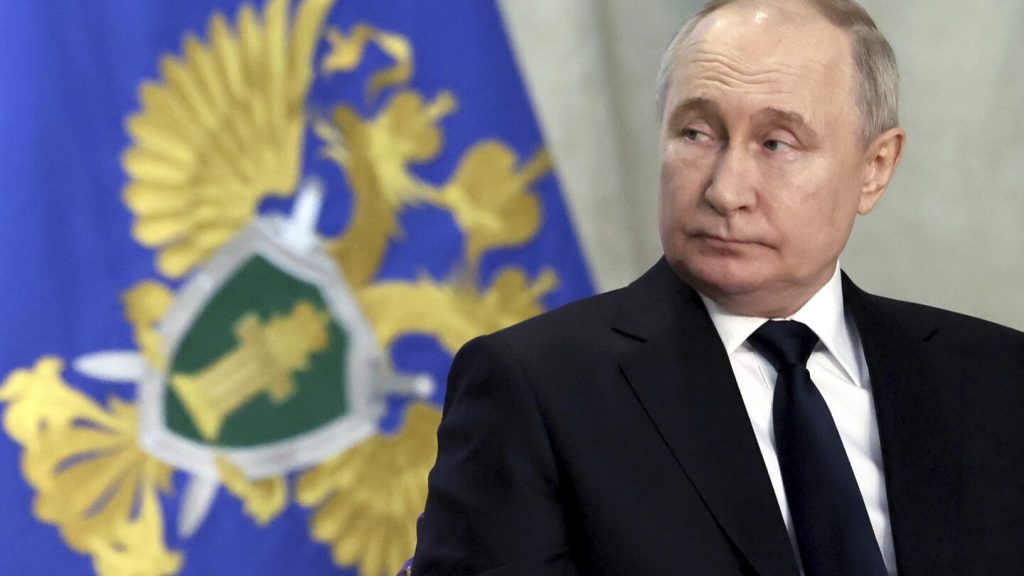Russian officials are maintaining their claim that Ukraine and the West were involved in last week’s deadly Moscow concert hall attack. Despite the Islamic State group claiming responsibility for the attack and U.S. intelligence confirming their involvement, Russian President Putin and the head of the Federal Security Service, Alexander Bortnikov, continue to allege Ukrainian and Western involvement without providing any evidence. French President Macron also indicated that there is intelligence pointing to an IS entity being responsible for the attack.
Bortnikov suggested that radical Islamists were behind the attack, with assistance from Western spy agencies and direct involvement from Ukrainian special services. He echoed Putin’s claim that the gunmen arrested were attempting to flee to Ukraine, which was countered by Belarusian President Lukashenko, who stated that the suspects were heading to Ukraine due to fear of strict border controls in Belarus. Russia is still reeling from the attack, with 139 people killed and 90 hospitalized, 22 of them in critical condition.
The four suspects accused of carrying out the attack appeared in a Moscow court on terrorism charges, showing signs of severe beatings. They are citizens of Tajikistan and were identified as Dalerdzhon Mirzoyev, Saidakrami Rachabalizoda, Shamsidin Fariduni, and Mukhammadsobir Faizov. Turkish authorities confirmed that two suspects had spent time in Turkey before traveling to Russia, indicating that they may have become radicalized in Russia. The Islamic State group has targeted Russia in the past, including downing a Russian jetliner in 2015.
Putin warned of the possibility of more attacks following the concert hall attack, suggesting possible Western involvement. He criticized the U.S. Embassy for warning Americans to avoid crowds in Moscow, calling it an attempt to frighten Russians and blackmail the Kremlin. Bortnikov thanked the U.S. for the warning but described it as general information. The FSB took measures to prevent incidents based on the tip, targeting suspects who were not identified but turned out to be false. Putin did not mention the confidential warning about a possible imminent terrorist attack shared by the U.S. with Moscow before the attack.
Overall, the aftermath of the Moscow concert hall attack has led to a complex web of allegations and finger-pointing between Russia, Ukraine, the West, and the Islamic State group. As investigations continue and more details emerge, the true motives and responsibilities behind the attack remain unclear. The focus is now on ensuring the safety of the public and preventing future attacks, as tensions between Russia and its neighbors continue to escalate.


